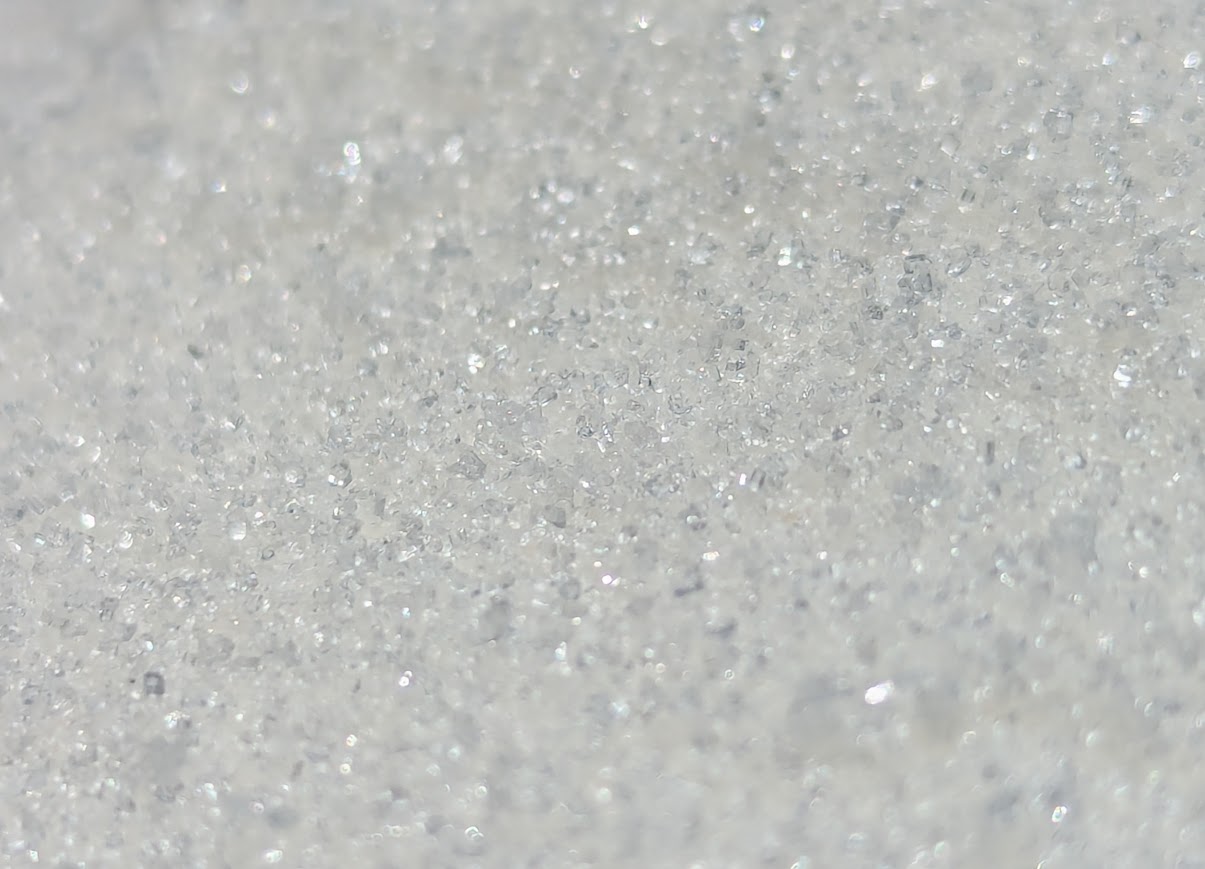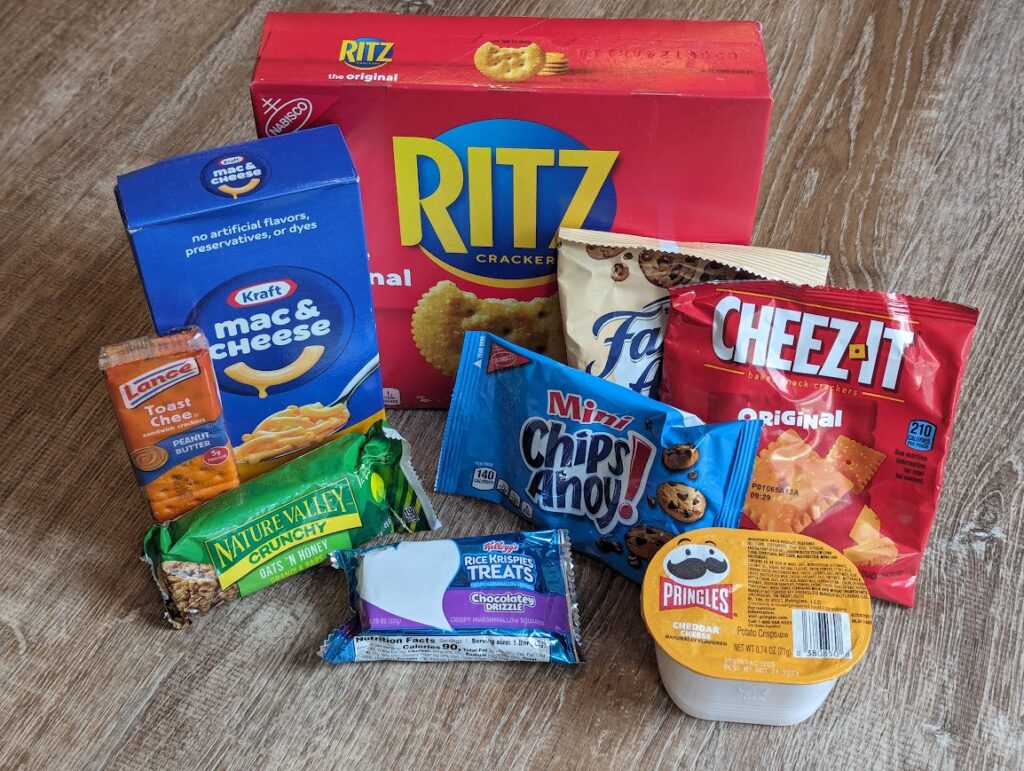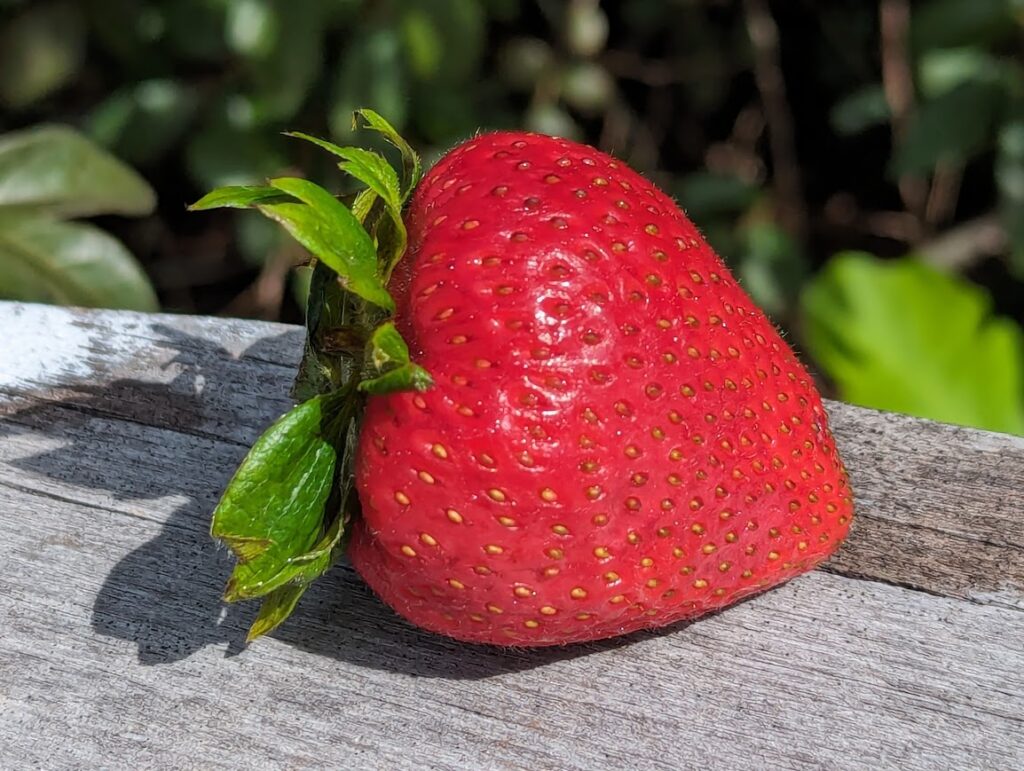How can we enjoy sweet things but still choose healthier alternatives? Which sugar substitutes are healthier for our bodies? Let’s just admit it…we ALL love sugar! Whether it’s a rich, deep chocolate treat or a decadent cookie or southern sweet tea or honey on a piece of fresh bread, sugar adds something to life. We also all know that sugar can have a long string of negative impacts on our health. The key is to find alternatives to processed sugar that are good for our bodies that we enjoy. That way, we’re not having to plan a “cheat meal” every time we get a sweet tooth.
What’s Important When Choosing Alternatives to Processed Sugar?
There are 2 main things to take into account when it comes to the “sweet life.”
-Is the sweetener “natural”? One of the most important things in determining if something is “healthy” is if it is something God put on this earth. Is it something your great, great grandma would have eaten & talked about? If not, it’s probably not natural.
-How does it effect your body? It’s super important how a sugar or carb effects your glycemic level (yes, this has to do with insulin resistance & whether or not you get that sugar crash or still feel great after you’ve enjoyed a treat).
Is All Sugar Bad?
There’s a common misconception about sugar today: “Sugar is bad.” If I eat a cookie, that’s bad; if I have a slice of cake, I’m going off my diet; chocolate cannot be a part of a normal healthy lifestyle. This just isn’t true. The problem with many modern diets today is that nearly everything has some form of sugar in it. Kids and adults are eating diets totally saturated with sugar.
I definitely believe in a “balanced” lifestyle, and that includes a little chocolate or a bowl of icecream here & there. The key is to start looking at labels so we know what we’re eating & make sure our entire diets aren’t “sugar-coated.”
Processed Sugar is in Everything
Here are some key words that mean something has sugar in it: corn syrup, high-fructose corn syrup, maltose, sucrose, fructose, dextrose, lactose, carob syrup, galactose, dextrin, brown rice syrup, & carob syrup. A lot of these words end with “-ose” or “syrup.” Keep an eye out for those so you’re not fooled by hidden sugars.
When I was looking at which cereals were healthier for my kids, I was finding that pretty much all cereal has multiple forms of sugar in it. The last thing my kids need first thing in the morning is sugar…sugar….and more sugar.
The ingredient list for Honey Nut Cheerios includes: sugar, honey, & brown sugar syrup (and all 3 of these are in the first 5 ingredients meaning that most of the cereal is composed of this & 2 other ingredients).
Did you realize that most chocolate bars have SUGAR as the first ingredient? I thought I was addicted to chocolate for a long time before I realized I was actually hooked on sugar…
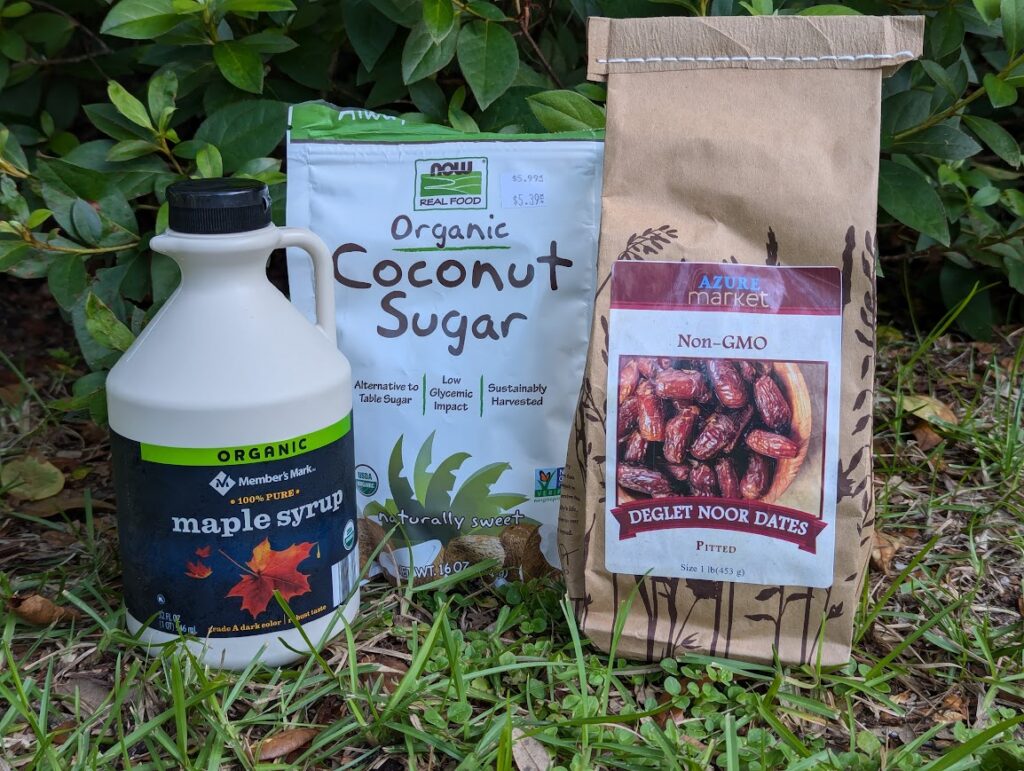
Healthy Sweeteners to Use
So what are some of the sweeteners you should look for when grocery shopping? Let’s first look at those items that are both natural & good for your glycemic (insulin) levels:
-Stevia is a plant that is very sweet like sugar. However, its super power is that it doesn’t affect your sugar levels like sugar does. I’ve found that it’s great for substituting for sugar in baked goods & recipes. I personally don’t enjoy it in liquids (like coffees & other drinks), but that comes down to personal preference.
-Xylitol and Erythritol are both sugar alcohols that are good for your sugar levels. A lot of healthy protein powders & protein bars use these as sweeteners
-Monk fruit comes from a fruit that grows in China. It is another natural option that helps keep your sugar levels low.
What sweeteners appear to be good substitutes but are really bad for your body?
*Beware of the sugar substitutes below that claim to have a low glycemic impact but are bad for your body in other ways. Many of these effect brain function & memory (who would choose to jeopardize their memory “on purpose”?). Sweeteners to avoid:
-Aspartame
-Sucralose (also known as “Splenda”)
-Saccharin (found in “Sweet’N Low”)
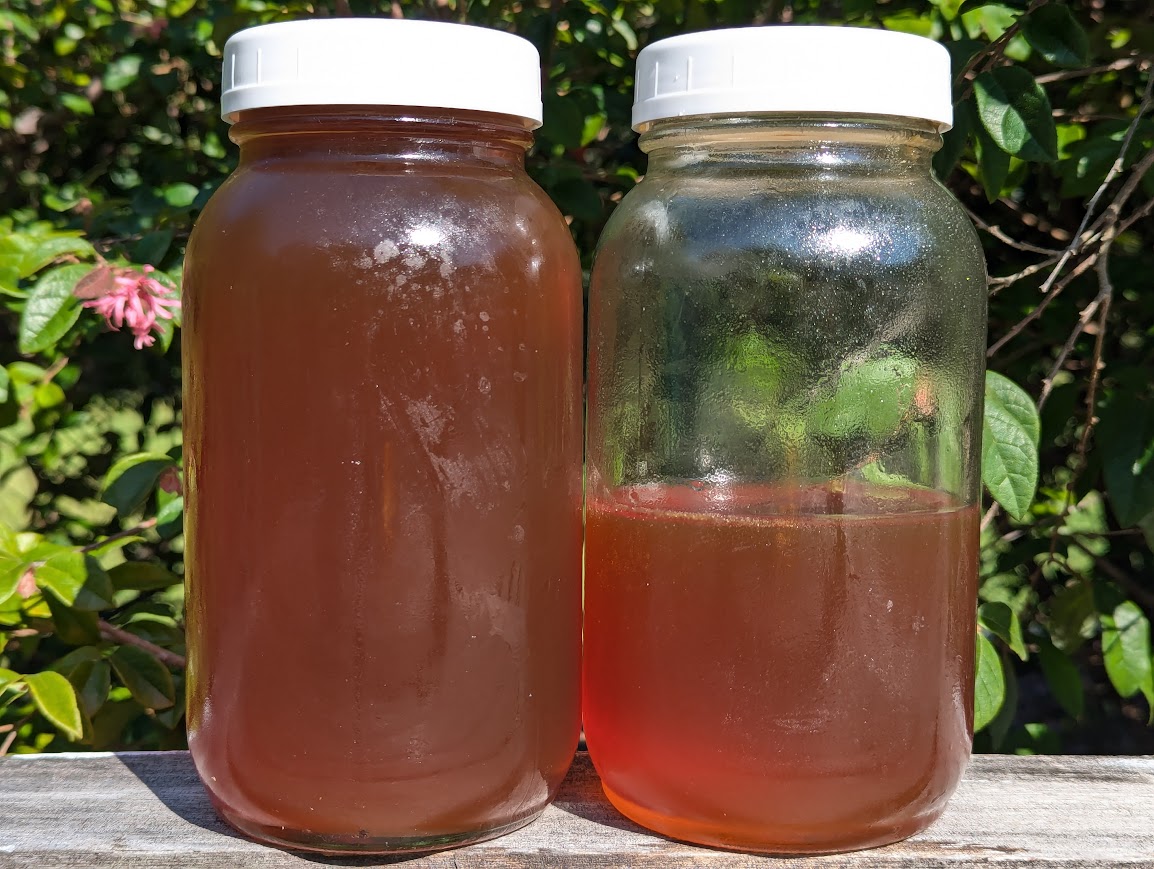
Other Healthy Options to Use in Moderation
Now what about other sugars that are natural but still affect the sugar level in our body? I believe God put certain things on this earth for us to enjoy. The real problem rises when EVERYTHING has sugar in it. In moderation, these natural sources of “something sweet” are a good alternative to processed sugar:
-Honey is great for cooking and adding a little sweet taste to snacks.
-Maple syrup comes from trees and was one of the “secrets” the Native Americans shared with the new colonies that settled in the north. I love the flavor it adds to things like Greek yogurt.
-Coconut sugar, like so many other things that come from coconut (coconut oil, MCT oil, etc.) is another wonderful natural option.
-Dates are found in a lot of “healthy” recipes to add a sweet flavor. Bananas and other fruits are also a great way to make things a little “sweeter.”
-What about sugar in the raw or pure cane sugar? A lot of store-bought sugar in America comes from either beets or cane sugar. If you can find pure cane sugar with little processing, that’s the best form of actual sugar. Keep in mind that table sugar in any form can have so many negative impacts on health, so experimenting with some of these other “sweets” can give you more options in your everyday life
As You Try Alternatives to Processed Sugar, Remember:
-The more natural the substitute the better!
-Keep in mind which “sweets” affect your sugar level and which ones don’t. Either way, moderation is a good rule to follow.
-Read labels. Make sure you aren’t eating “sugar” in everything you eat. If something is at the top of a label, it mostly consists of that ingredient; if it’s the last item in the list, it may only be a small amount. Keep in mind that fruit is full of natural sugars, so if you’re eating fruit already, you may be filling your body with plenty of sugar without adding anything to it.
It’s Important to Live a Balanced Life
Nearly everyone enjoys a little processed sugar now and then. The key is to choose the healthy alternatives most of the time and choose natural options whenever possible. It really is possible to enjoy the “sweet life” and still live a healthy lifestyle!
